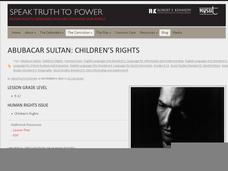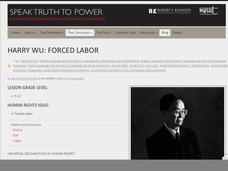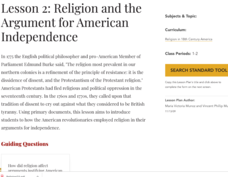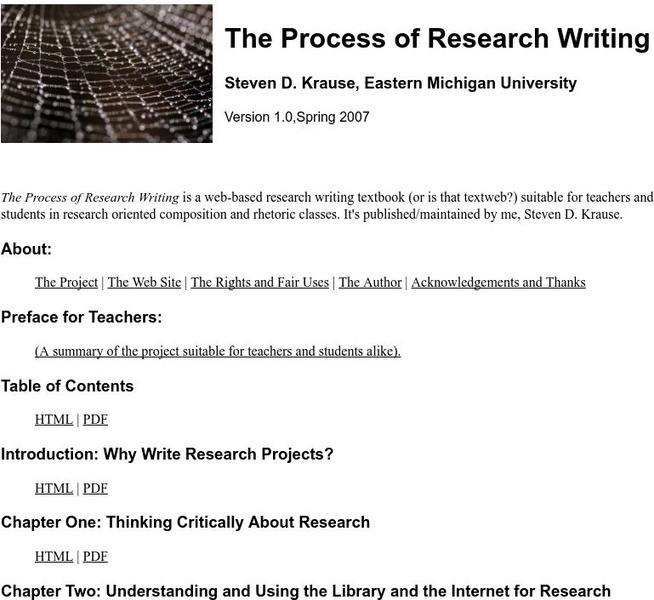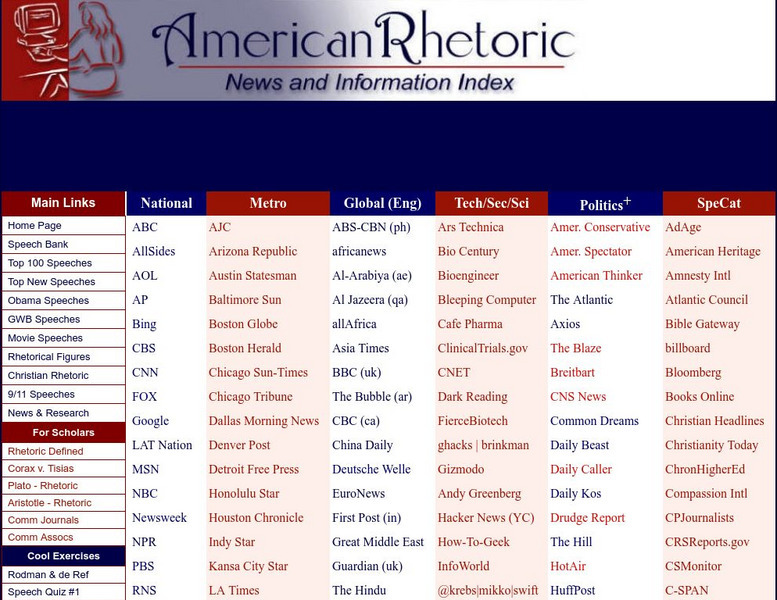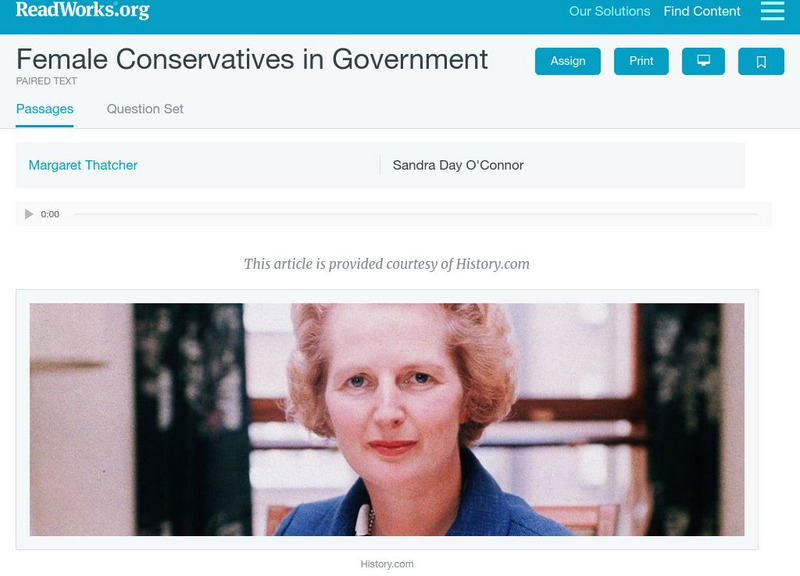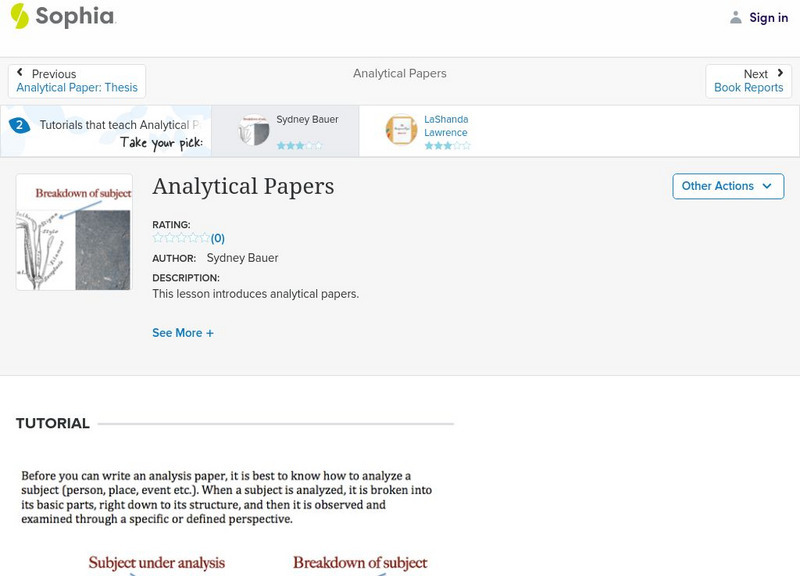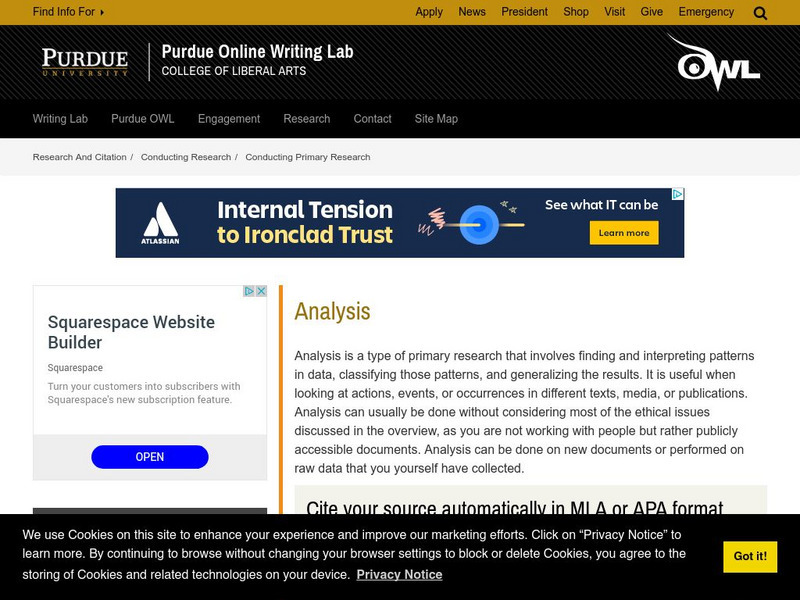Speak Truth to Power
Elie Wiesel: Speaking Truth to Genocide to Power
Invite your learners to discover the efforts of Night author Elie Wiesel to promote awareness of genocide in the world. After watching and reading an interview of Elie Wiesel, high schoolers work to create a living Holocaust...
Speak Truth to Power
Dalai Lama: Free Expression and Religion
How is religious freedom connected to the conflict between China and Tibet? After reading an online passage of background information, your learners will divide into groups and both read and view an interview with the Dalai Lama. They...
Speak Truth to Power
Abubacar Sultan: Children’s Rights
This is an excellent resource for introducing and exploring the topic of child soldiers. Ethics, history, or theology classes will benefit from the high-quality information. This includes detailed instructions for an introductory...
National Center for Case Study Teaching in Science
In Sickness and in Health
Based on family history, how likely is it that a couple's children will have a recessive disease? In an in-depth, but easy-to-follow case study, future geneticists learn the story of Greg and Olga, who are hoping to have children, but...
Speak Truth to Power
Harry Wu: Forced Labor
Over the course of two class periods, young historians explore human rights issues; specifically, forced labor in China. This resource provides everything you need, including relevant vocabulary, an anticipatory activity, and a...
National Endowment for the Humanities
Lesson 2: Religion and the Argument for American Independence
Young scholars examine how religion affected arguments justifying American independence. They read and analyze primary source documents, and write an essay analyzing how Americans used religious arguments to justify revolution against a...
National Endowment for the Humanities
Lesson 1: The First Great Awakening
High schoolers examine the First Great Awakening and how it affected religious belief in colonial America. They read and analyze primary source documents, explore various websites, and write a five-paragraph essay examining the beliefs...
Children’s Hospital of Philadelphia
Case Studies: Influenza and HIV
Stop infection spread. Pupils participate in an activity to model infections and replications of viruses. Within the activity, scholars see that viruses may end up with genetic variation and connect that to how some forms of the flu are...
National Endowment for the Humanities
The Debate in the United States over the League of Nations: Five Camps: From Voices of Consent to Voices of Dissent
Students explore and discuss Woodrow Wilson's concepts for peace and the League of Nations. They understand efforts made to foster American support for the League and discuss the opposition shown in the Senate.
Curated OER
When the Snow is as High as an Elephant
High schoolers study the concept of mean values using a data plot. Learners enter the given data in the activity to create their data table. They use the data table to calculate the mean of the snowfall percentage provided in the...
National Endowment for the Humanities
Lesson 3: Religion and the Fight for American Independence
Pupils explore the role religion played in the American Revolutionary War. Using primary documents and writing exercises, high schoolers understand how religion was used in support of the war efforts and how specific religious groups...
National Endowment for the Humanities
Lesson 2: The Debate in Congress on the Sedition Act
Pupils research and discuss the provisions in the Constitution that supported the arguments for and against the Sedition Act. They articulate objections to and arguments in favor of the Sedition Act.
Other
The Process of Research Writing
This online book outlines a process for teaching research and writing in ways beyond the traditional, one-time, massive "research paper" Lots of food for thought. The chapters take you through the writing process and more. Click on the...
American Rhetoric
American Rhetoric: News and Information Index
This website is a news and information index that offers links to news sources, newspapers, magazines and journals, search engines, polling data, legal resources, and citation guides.
Read Works
Read Works: Passages: Sandra Day O'connor
[Free Registration/Login Required] Students read a nonfiction text Sandra Day O'Connor and a linked passage about Margaret Thatcher and then complete questions over the paired texts.RI.11-12.5 Evaluate text structure
Sophia Learning
Sophia: Research Sources: Periodicals
This slideshow lesson focuses on the use of periodicals as research sources; it discusses the pros of using periodicals as organizational aids and in research of current events and also the cons of periodical's lack of depth and possible...
Sophia Learning
Sophia: Analytical Papers
This lesson focuses on analytical papers; it explains how to analyze a subject and the goal of analytical papers. They must include a defined or specific perspective from which to evaluate, an evaluation, and the breakdown of the...
Houghton Mifflin Harcourt
Holt, Rinehart and Winston: Writer's Model: Historical Research Paper
This eleven-page research paper provides an example of a historical research project. Clicking on the "Writer's Guide" link in the upper right-hand corner of the page enables the user to get tips, directions, and explanations on the essay.
Other
Groucher College: Library Research Techniques for the Professional Scholar
This site provides clear techniques and guidelines on finding secondary and primary research for use in scholarly analysis that involves looking at the evidence and discovering a pattern that makes meaning.
University of North Carolina
University of North Carolina: Writing Center: Handouts: Evidence
What kinds of evidence best support the points you make in a paper? Where can you find the evidence you need? This handout answers all these questions and more, including the difference between primary and secondary sources. You'll also...
University of Toronto (Canada)
University of Toronto: Engineering: Types of Documents
This site offers links to types of documents used to communicate information in the workplace. They include short reports, proposals, memos, case studies, and lab reports.
Online Writing Lab at Purdue University
Purdue University Owl: Analysis
This entry focuses on using analysis to interpret primary resources; it provides methods and examples of analysis. W.9-10.10 Write Routinely
American Rhetoric
American Rhetoric: Communication Journals
This is an index of communication journals and their publishers with links to the journals.
Texas Education Agency
Texas Gateway: Determining Validity and Reliability of Sources
This lesson will help students decide which sources are valid and reliable for supporting a thesis. It discusses how to evaluate books, articles, websites, and more.


